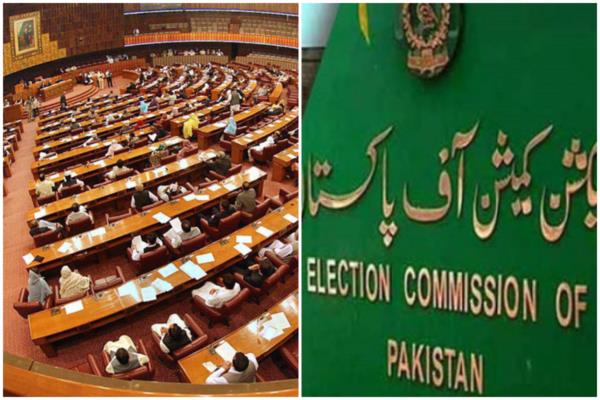Apex court’s July 12 ruling is now ‘incapable of implementation’ after the amendments to Election Act 2017: Sardar Ayaz Sadiq
Says no allocation can now be made by the ECP without applying the Amended Election Act to the fullest
ISLAMABAD ( WEB NEWS )
Days after the Supreme Court of Pakistan issued clarification on the reserved seats verdict, National Assembly Speaker Sardar Ayaz Sadiq said that the apex court’s July 12 ruling is now “incapable of implementation” after the amendments to Election Act 2017.
In what it called a major victory for Pakistan Tehreek-e-Insaf (PTI), a 13-member full bench of the top court on July 12 ruled that the Imran Khan-founded party was eligible for the allocation of reserved seats for women and non-Muslims in the national and provincial assemblies.
Justice Syed Mansoor Ali Shah announced the 8-5 majority verdict, nullifying the Peshawar High Court’s (PHC) order wherein it had upheld the Election Commission of Pakistan’s (ECP) decision denying the reserved seats to the Sunni Ittehad Council (SIC)
The PTI candidates contested the February 8, 2024 general elections as independents after the top court upheld the ECP decision to deprive the opposition party of its iconic electoral symbol — bat — over “unlawful” intra-party polls.
The decision forced the PTI-backed winning candidates to join the SIC in a bid to claim reserved seats. However, the ECP denied the reserved to the SIC over its failure to submit list of candidates within the stipulated time.
NA Speaker Sardar Ayaz Sadiq, in his letter to the electoral watchdog, noted that the Supreme Court had directed the Election Commission to allow independent returned candidates to join another political party months after already joining a political party as a result of the General Elections 2024. “In effect, the SC judgment has allowed a returned candidate to switch political parties,” it noted.
However, Sardar Ayaz Sadiq noted, after the July 12 ruling, parliament adopted the Elections (Second Amendment) Act, 2024 — which had also received President Asif Ali Zardari’s assent on August 7 and published in the Gazette of Pakistan on August 9 as “Amended Election Act”.
He pointed out two “particular provisions” — amendments to Section 66 and Section 104-A, which he said, were relevant for the Election Commission’s consideration.
In its amendment to Section 66 of the Elections Act, the bill says that if a candidate does not submit a declaration of his affiliation with a political party to the returning officer (RO) before seeking allotment of the election symbol, they shall be “deemed to be considered as an independent candidate and not a candidate of any political party”.
Meanwhile, the amendment to Section 104 reads that the declaration, consent or affidavit, by whatever name called, of an independent returned candidate once given for joining a political party shall be irrevocable and cannot be substituted or withdrawn.
Furthermore, the letter pointed out Section 1 (2) of the Amended Election Act, which states that the said amendments will have retrospective effect from 2017 when the Election Act 2017 was passed.
“In view of this backdrop, it is stated that independent returned candidates who have already given a joining to a political party cannot be allowed to now switch parties in terms of the Amended Election Act which has paramount and overriding effect,” Sardar Ayaz Sadiq wrote.
The speaker also stated that no allocation can now be made by the ECP without applying the Amended Election Act to the fullest.
“As the SC judgment was rendered based on the law prior to the enactment of the amendment, the said judgment is now incapable of implementation,” it said, noting that it is the Amended Election Act that shall prevail and supersede the prior ruling. The copy of the letter written by Sardar Ayaz Sadiq has been sent to Chief Election Commissioner Sikandar Sultan Raja, all four members of the commission and Secretary Election Commission of Pakistan Omar Hamid Khan.

